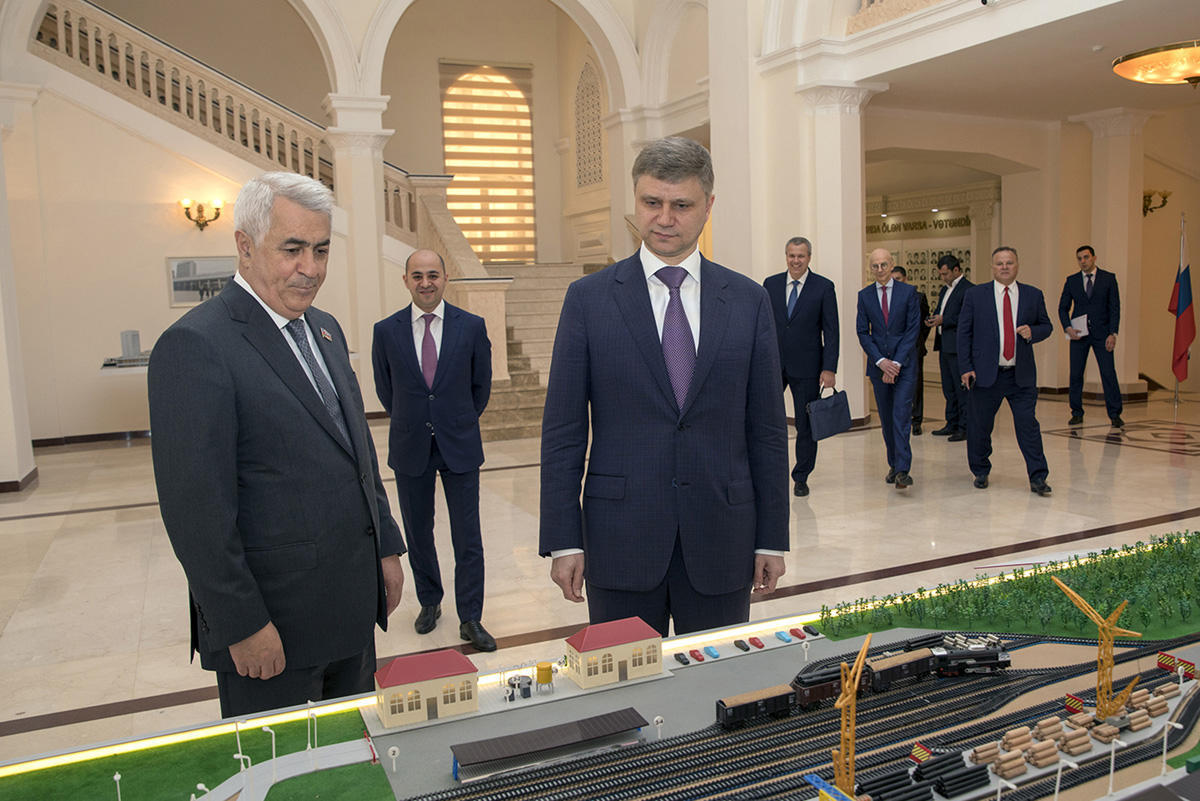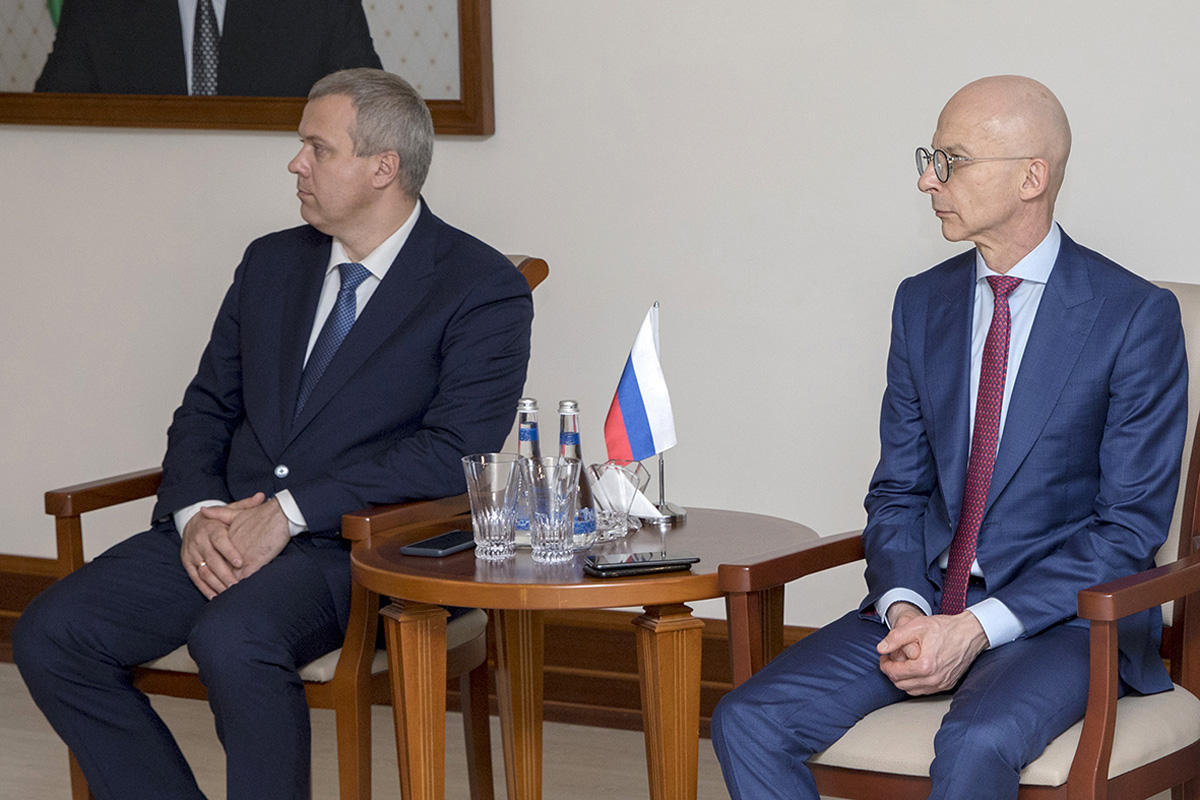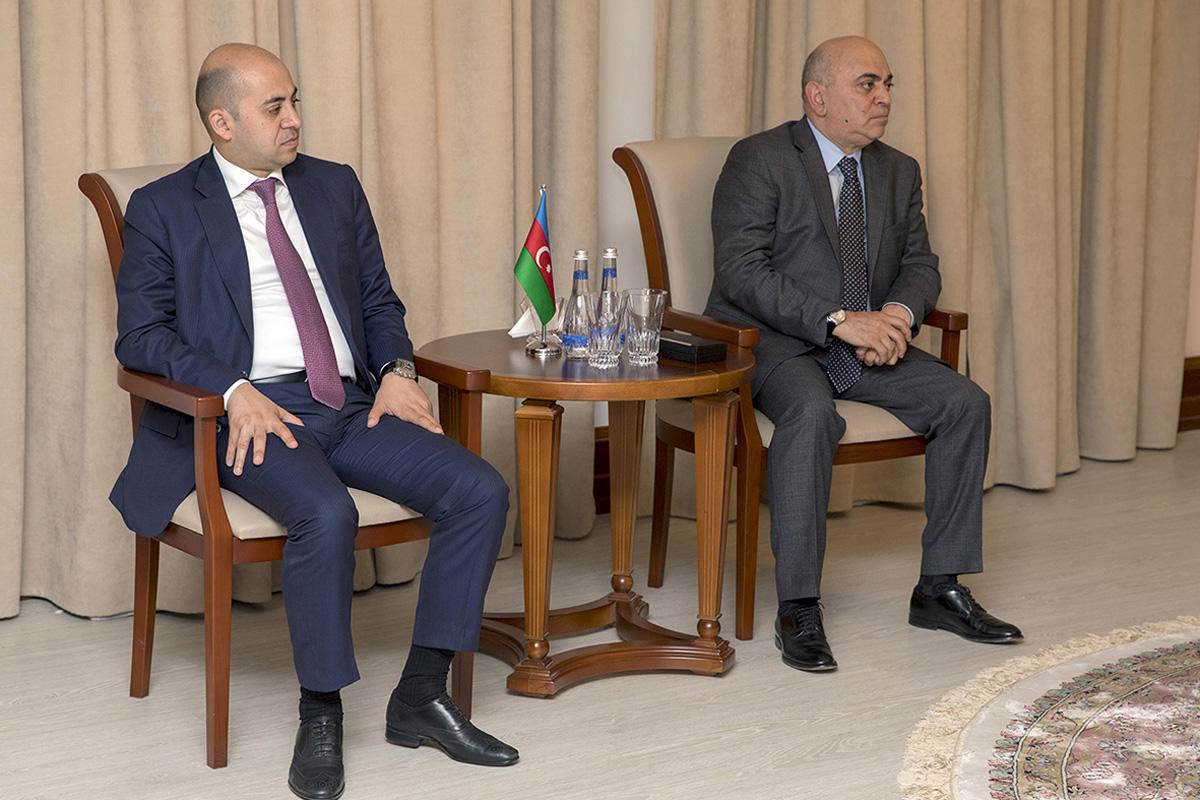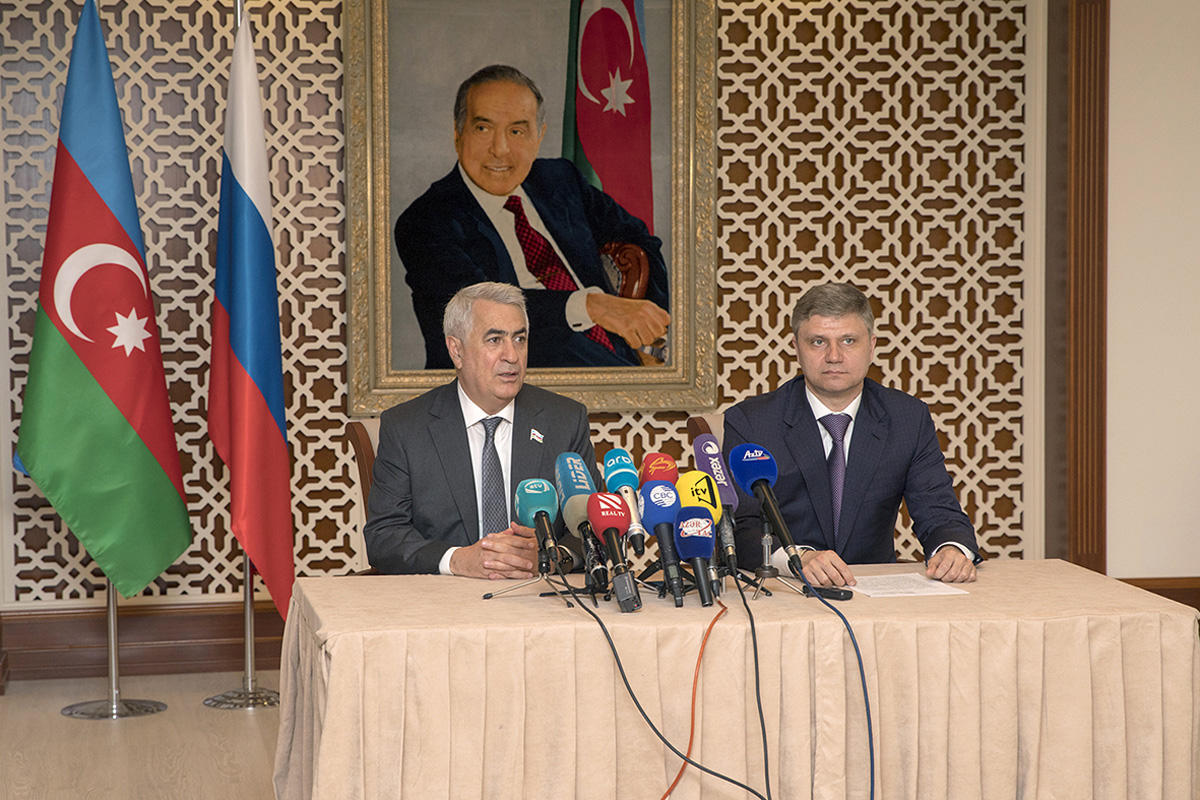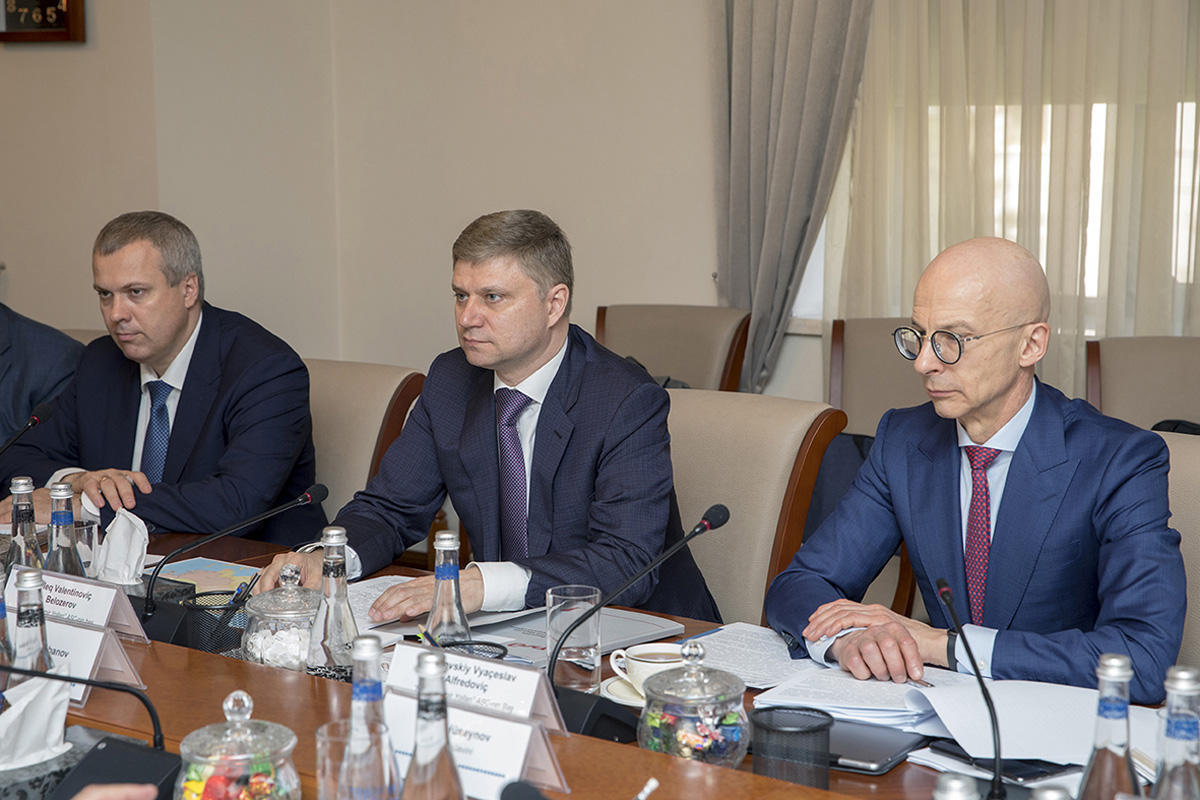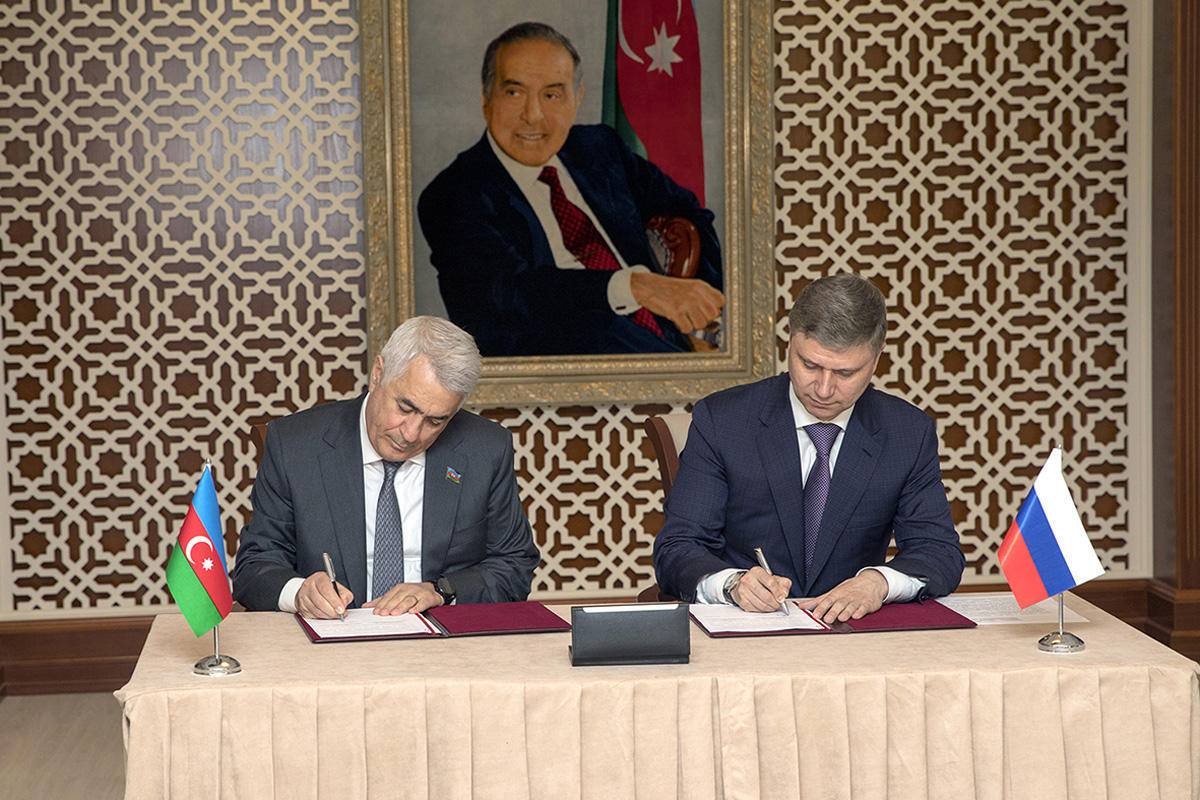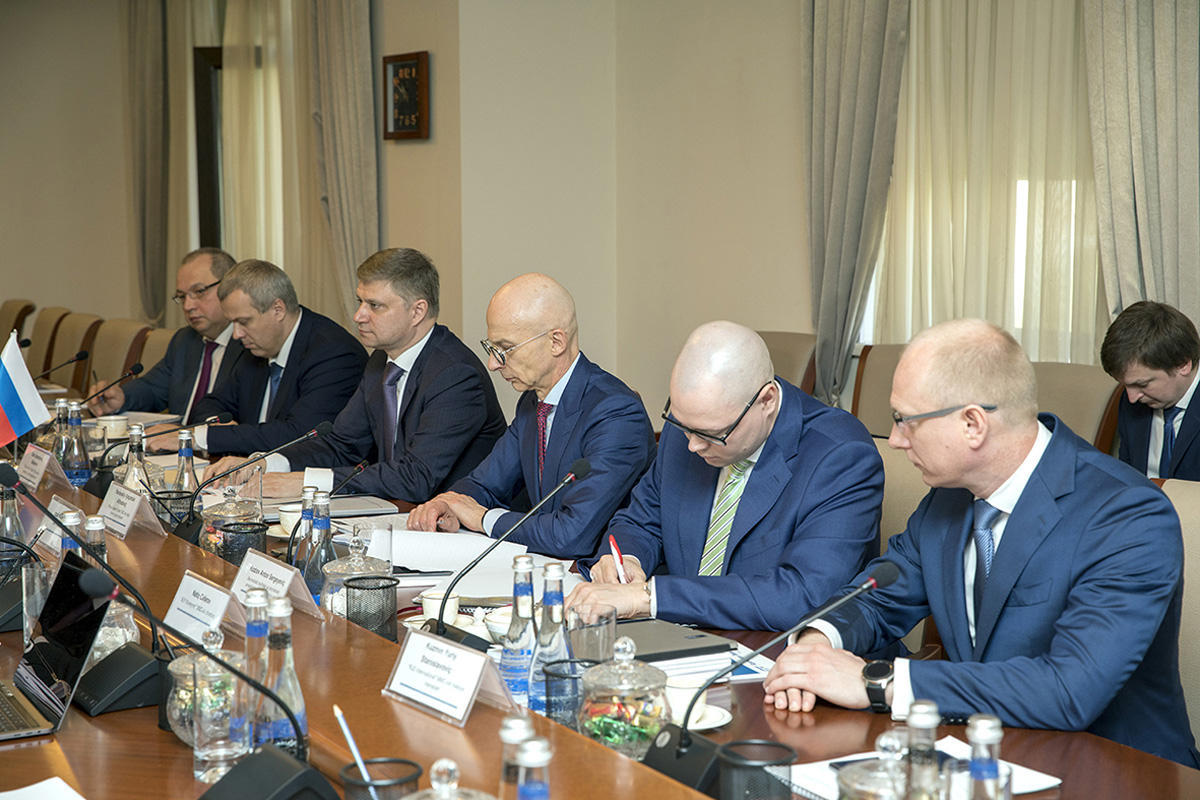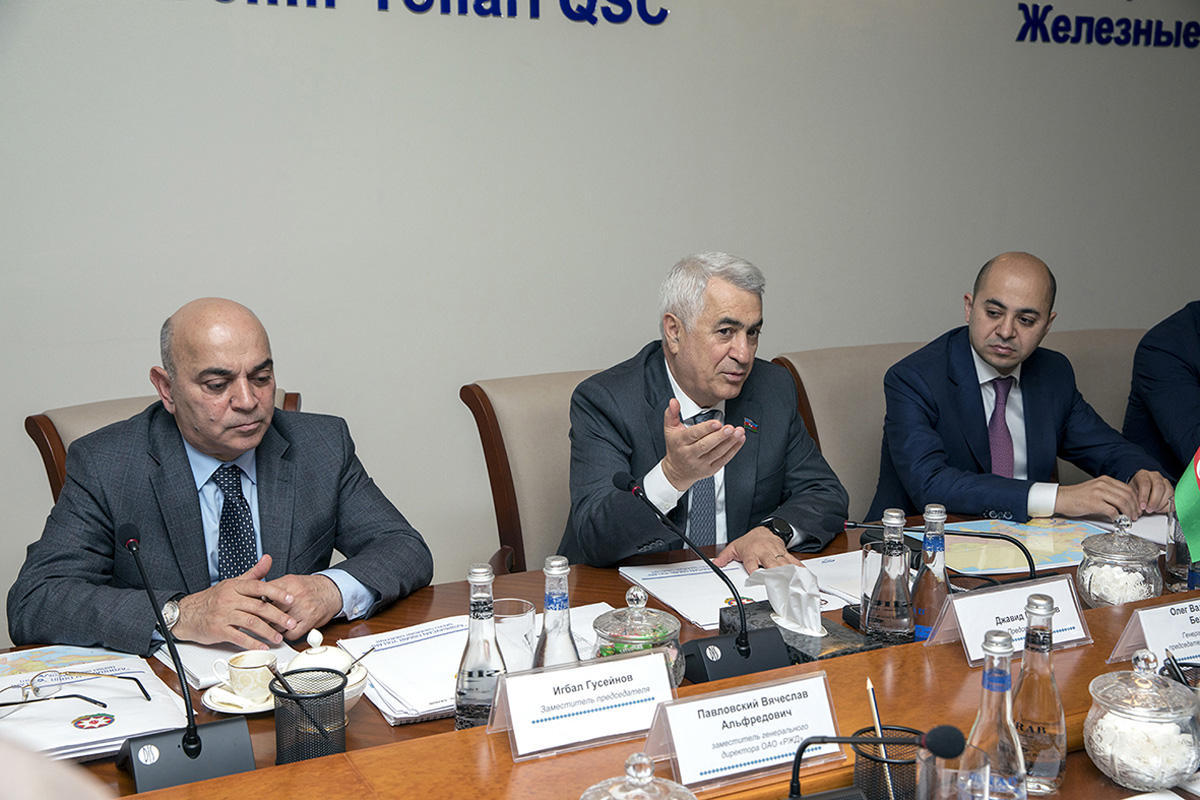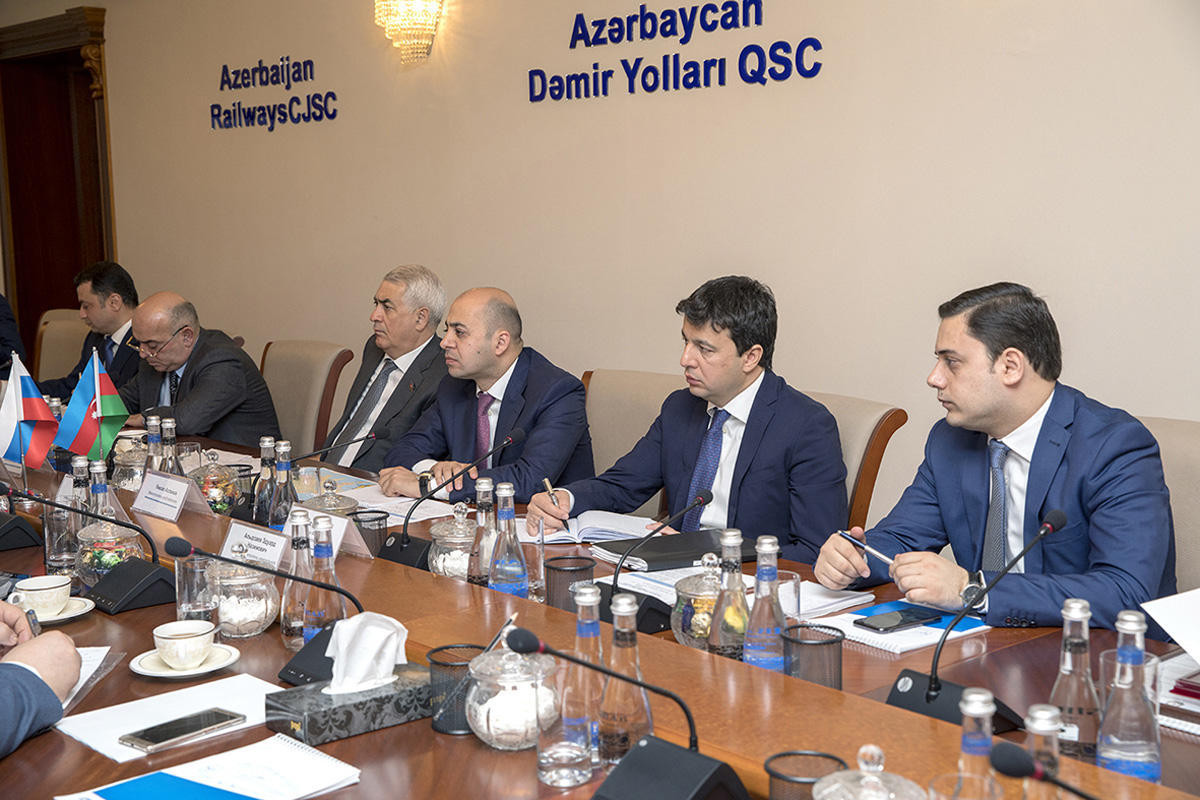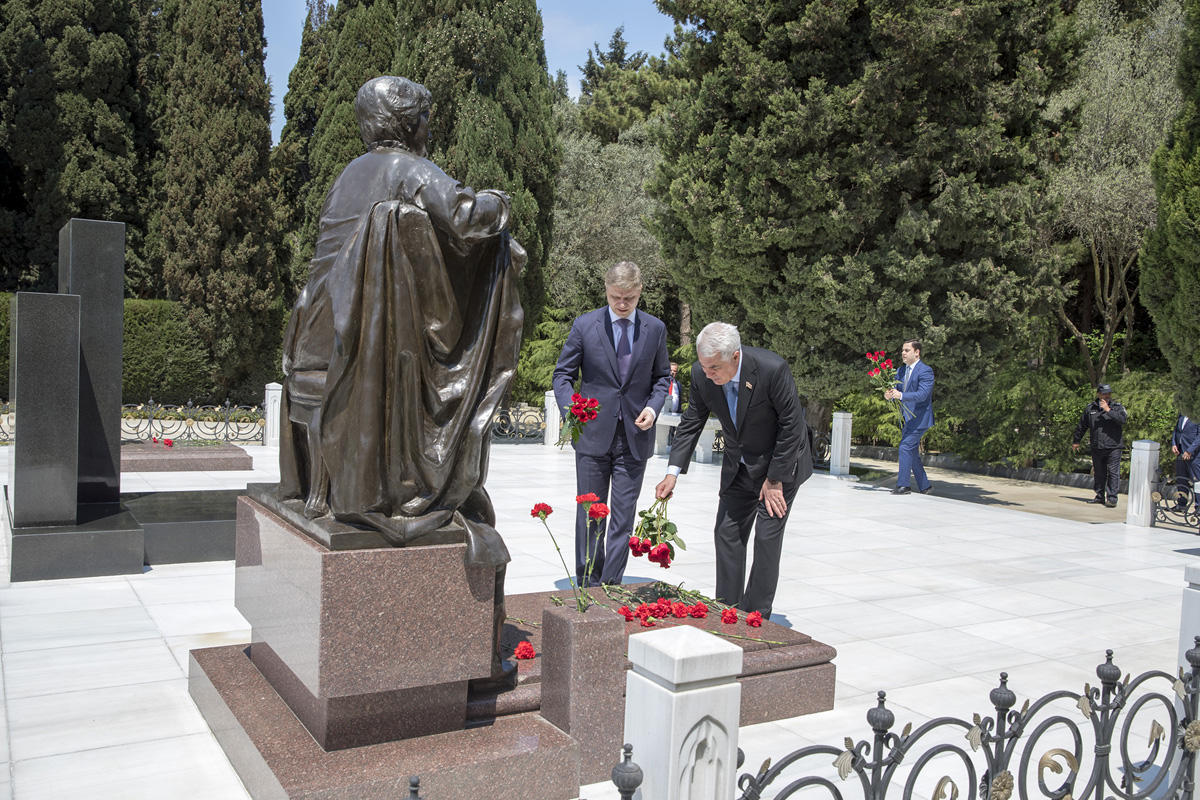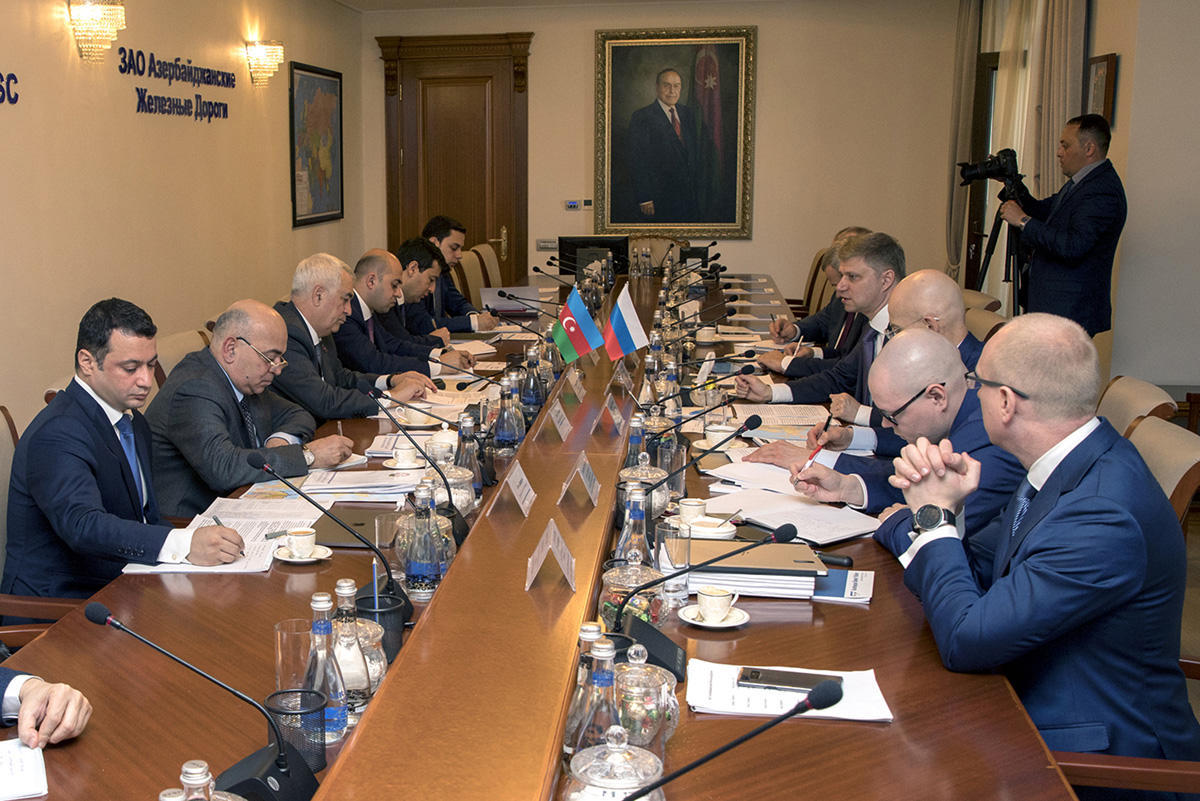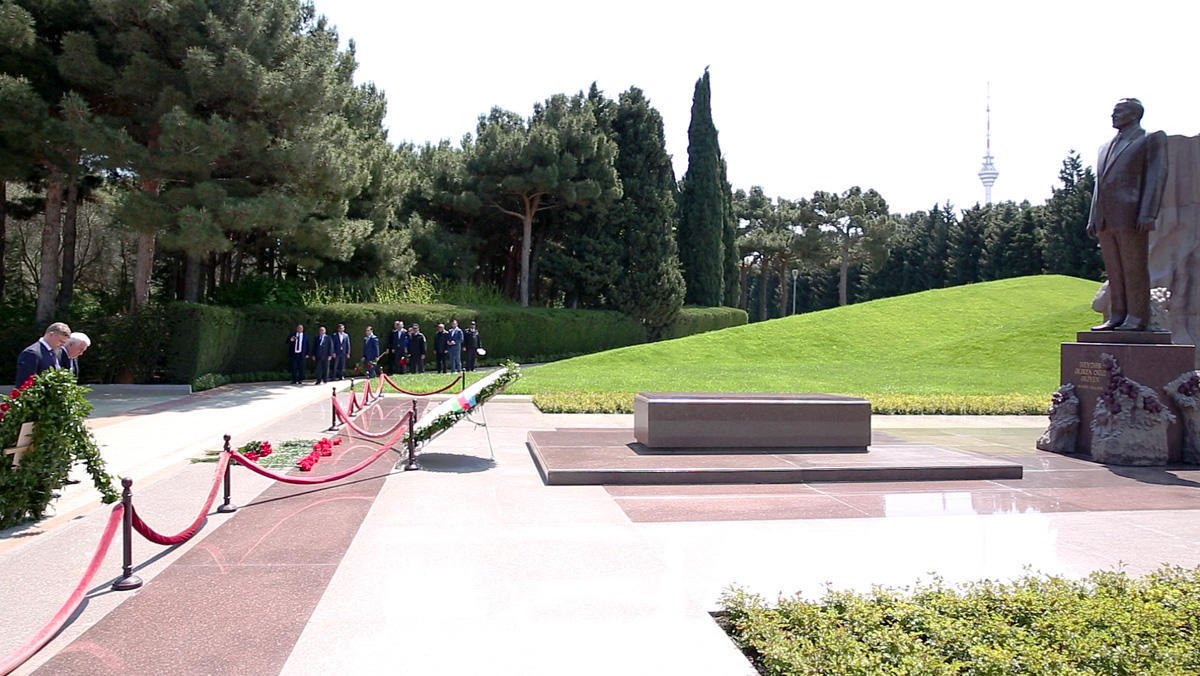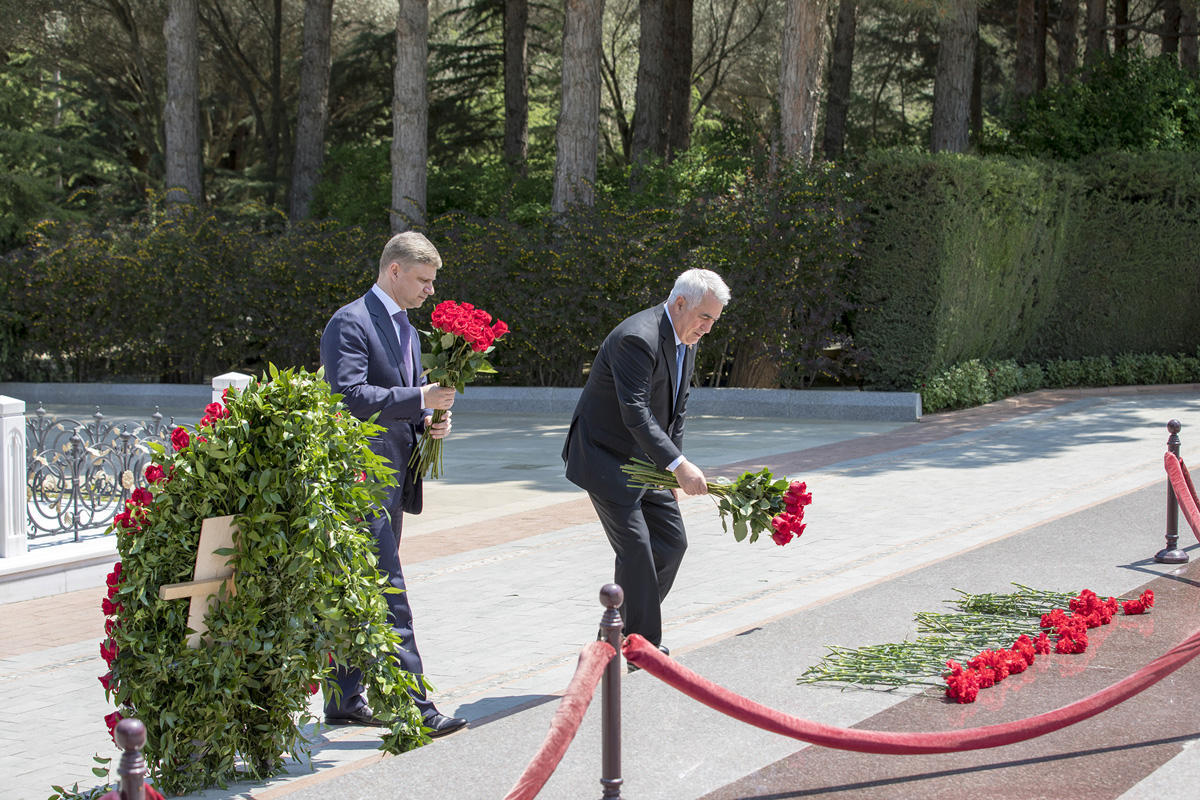Azerbaijani, Russian railways aim at increasing transit traffic [PHOTO]
![Azerbaijani, Russian railways aim at increasing transit traffic [PHOTO]](https://www.azernews.az/media/2019/05/06/azerbaijan_russia_memorandum_060519_11.jpg)
By Leman Mammadova
The improvement of transport and logistics issues between Russia and Azerbaijan serves not only to the bilateral trade, but also to the realization of the International North-South Transport Corridor (INSTC) connecting Northern Europe with South-East Asia.
On May 6, Chairman of Azerbaijan Railways CJSC Javid Gurbanov held a meeting with a delegation led by Oleg Belozyorov, Director General of Russian Railways OJSC.
At the meeting, Gurbanov informed the guests about Azerbaijan’s transport and logistics potential and international transport corridors.
Speaking about the INSTC, the chairman stressed that this corridor will not only expand trade and economic relations between Azerbaijan, Iran and Russia, but will also play an important role in the development of other regional countries, which will carry out export-import operations along this route, by increasing the trade turnover.
The sides also discussed the further expansion of bilateral cooperation ties.
Following the meeting, Gurbanov and Belozyorov signed a memorandum on the development of cooperation between the railways of Azerbaijan and Russia.
The memorandum envisages implementing the coordinated policy for the development and operation of the Eurasian international transport corridors, as well as expanding foreign economic relations and ensuring optimal transport conditions for transit traffic.
The sides intend to develop comprehensive cooperation in the railway sector, including the transport and transit potential of national railway companies through the joint implementation of measures that will contribute to the growth of freight traffic via the Iran-Azerbaijan-Russia-Europe routes within the western route of the INSTC and the Russia-Azerbaijan-Turkey route by using the infrastructure of the Baku-Tbilisi-Kars railway.
Railways of the two countries have agreed to jointly attract additional cargo for transportation via container trains through the western route of the North-South corridor and other routes.
In addition, the companies' efforts will be focused on the development of transit traffic in the East-West-East direction, primarily the transit traffic between Azerbaijan and China through Russia, as well as transit traffic between China and other countries through Russia and Azerbaijan.
The sides also plan to optimize border and customs procedures, including e-data interchange and e-preliminary information to reduce the time of cargo delivery.
Moreover, they will coordinate the development of the cross-border infrastructure of the Samur-Yalama border crossing to increase its capacity, taking into account the promising traffic volumes along the North-South transport corridor and other routes.
International North-South Transport Corridor is designed for the transportation of goods from India and the Gulf countries to Russia, Western Europe, the Baltic and Scandinavian countries. The corridor was established in 2000 with an intergovernmental agreement between Russia, Iran and India. The main purpose of the agreement is to increase the efficiency of transport communications in the organization of freight and passenger transportation.
The project envisages connecting India with the Middle East and the Caucasus, Central Asia and Europe. The purpose of the corridor is to reduce the delivery time to three weeks from India to Russia, as well as to North and Western Europe as the current route takes more than six weeks. If cargo transportation by sea through the Persian Gulf, the Suez Canal and the Mediterranean Sea to Helsinki is carried out within 45-60 days, the delivery time along the North-South corridor will be 20-25 days.
In the framework of the INSTC, Azerbaijan, Iran and Russia signed an agreement in 2005 on the construction of the 375 km long Astara-Rasht-Qazvin railway. It envisages the construction of a new railway line in Iran, which will connect Astara, Azerbaijan to the Iranian cities of Astara, Rasht and Qazvin as well as the reconstruction of an existing railway in Azerbaijan.
The expected volume of cargo on the corridor passing through the territory of Azerbaijan is 3 million tons at the first, 5-8 million tons at the second and 15 million tons at the third stages.
Azerbaijan is one of the main economic partners of Russia among the CIS countries and Russia remains one of Azerbaijan’s main foreign trade partners. Interregional cooperation plays an important role in the development of Russian-Azerbaijani trade and economic relations and the increase in trade turnover. Russia ranks first in terms of export of non-oil products from Azerbaijan.
So far, the value of investments by Russian companies in Azerbaijan amounted to $4.4 billion, and the Azerbaijani investments in Russia stood at $1.2 billion. In 2018, the trade turnover between two countries exceeded $2.5 billion.
Russia is a strategic partner of Azerbaijan. The legal framework between the countries includes over 180 documents, including about 50 in the economic sphere.
---
Leman Mammadova is AzerNews’ staff journalist, follow her on Twitter: @leman_888
Follow us on Twitter @AzerNewsAz
Here we are to serve you with news right now. It does not cost much, but worth your attention.
Choose to support open, independent, quality journalism and subscribe on a monthly basis.
By subscribing to our online newspaper, you can have full digital access to all news, analysis, and much more.
You can also follow AzerNEWS on Twitter @AzerNewsAz or Facebook @AzerNewsNewspaper
Thank you!

